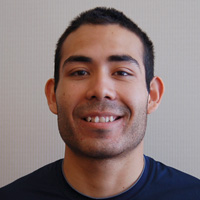Spending two years in the Division of Juvenile Justice, California's youth prison system, changed my life. I will never forget the violence and trauma I experienced.
At 16, I was arrested for attempted burglary and spent two years in two state youth prisons, Preston and O.H. Close. At Preston, my first night I experienced my first fight. Guards stood by and watched. I was placed in solitary confinement in a tiny concrete cell. The toilet overflowed with sewage that spread across the floor and into other cells. After 24 hours, I was moved to a wire cage, fit for a human-sized rooster. Kids warned that if I pissed off any guards, they'd allow other youth to attack me, or the guards themselves would. Soon guards introduced me to their "corrupted code of ethics," where youth and staff coordinated dates, times and locations for fights, riots, even contraband transactions.
At O.H. Close the violence continued, except these guards were more secretive. There I spent 12 days in 24-hour lockup inside a closed unit. When I left, I felt like I had just come out of my mother's womb struggling to use my limbs. I attended school in closets and showers. This type of extended confinement is torture. It adds damage to damaged youth. Throughout my stay inside DJJ, nothing was offered to build me up as a productive citizen. Instead of treatment and counseling, prison guards humiliated me. All these factors contribute to the 85 percent recidivism rate at DJJ.
Today I attend college, counsel incarcerated youth and advocate for change with the The Ella Baker Center for Human Rights. I'm an exception because I reached out to God and refused to let the miserable reality of what I was dealing with in those DJJ walls force me to quit on myself or my family. But the horror still exists inside DJJ.
Kids should have a chance to turn their lives around. Locking a kid in a hazardous environment does nothing but leave a kid broken for life. How much money has to be wasted? How much abuse has to take place? And how many futures have to be denied until we realize just how dysfunctional this is? When is enough, enough?
